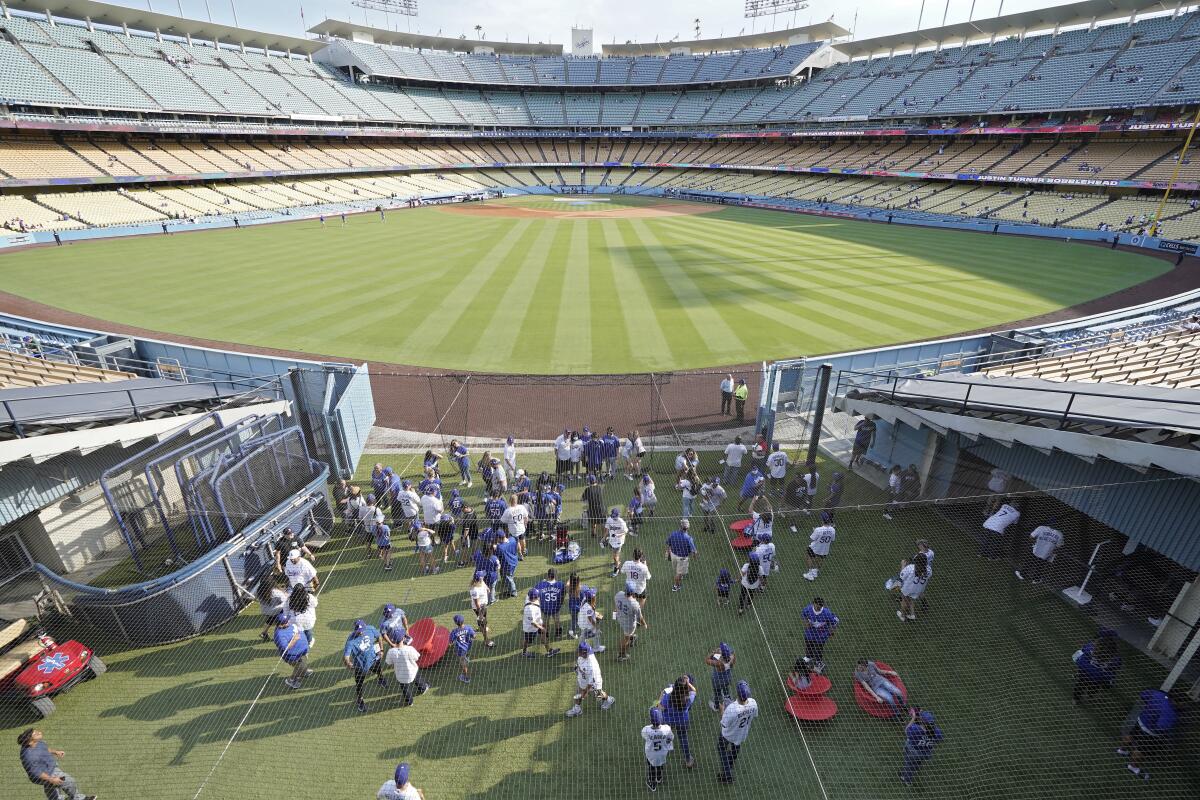Letters to the Editor: Baseball is back — but please, only seven innings of it

- Share via
To the editor: Among the issues in the Major League Baseball player lockout saga was speeding up games. Baseball could save some time by calling every foul ball a strike, eliminating the manager’s walk to the mound when replacing a pitcher, and fining players who leave the dugout for every minor kerfuffle.
But, baseball could speed up the game, lower the cost to the teams and make it more exciting for the fans with one rule change: End the game after seven innings.
Both fans and management would win. Not even the most ardent audience enjoys a three- or four-hour game. But fans would pay attention for a seven-inning game. And, night games wouldn’t stretch into the midnight hour, so fans would be able to bring their kids.
Reduce the game to seven innings, and you reduce the cost to the teams. Most relief pitchers are called in from the seventh inning on. Relief pitchers are the costliest line item on an owner’s payroll. Without having to pay for so many relievers, teams could spend the money on hitters — and with more hitters come more home runs, more men on base and all the ingredients for a more exciting game.
It is past time we saved our national pastime.
Bert Berdis, Los Angeles
..
To the editor: Baseball supposedly pulled itself back from the abyss last Thursday when the players’ union and MLB management finally came to terms. Prior to the agreement, writers all across the country were sounding the sport’s death knell while putting the finishing touches on its obituary.
But let’s be clear: Baseball would most definitely survive even if a strike became inevitable. After all, the great unravelling of the national pastime in the 1994 strike was followed by the golden age of home runs and steroids that sold tickets by the millions.
As long as kids fill their summertime hours on ballfields, there will be baseball. They simply don’t care if billionaires are squabbling over pennies on the dollar or players are more interested in maximizing their contracts than sharpening their athletic skills.
One more thing: If this belated season ends up modernizing a game that has been plagued by slow play for decades now, then every minute of finger-pointing this past winter was well spent.
Bob Ory, Elgin, Ill.



